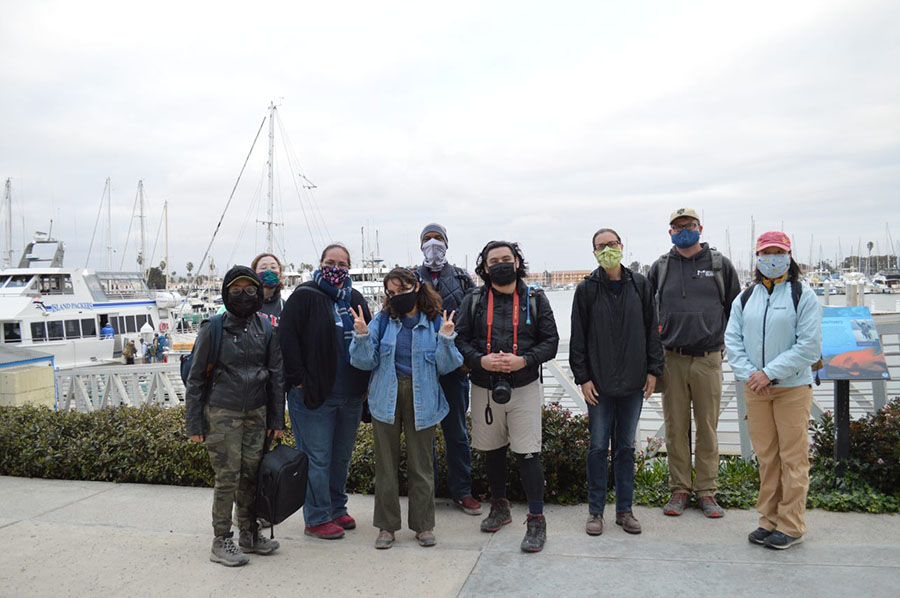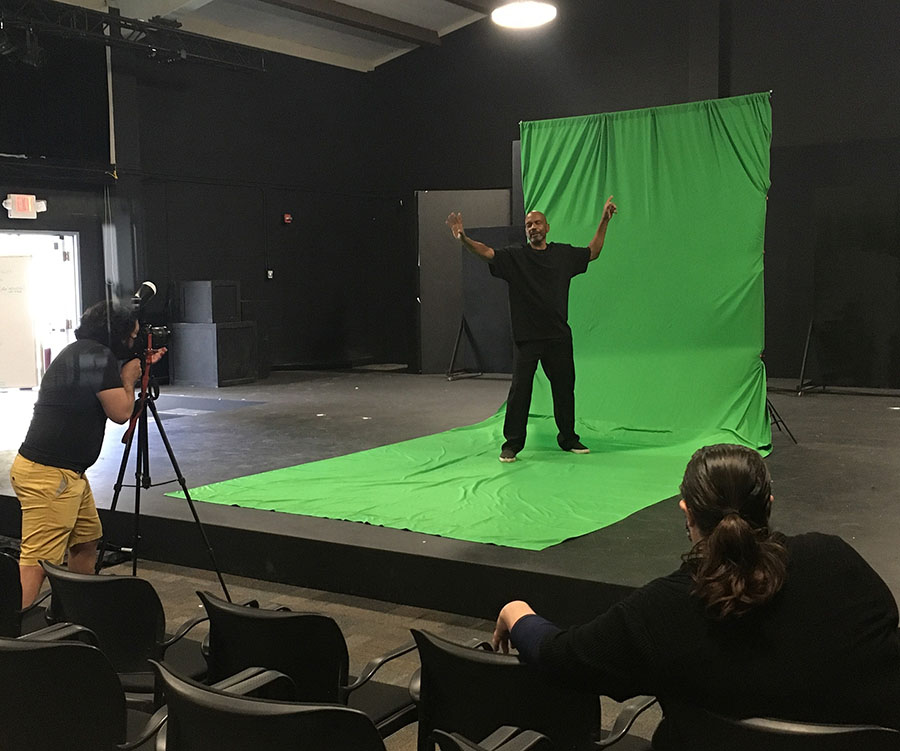
Nov. 5, 2020 — Santa Barbara Island is teeming with land birds and cattle once roamed the Santa Rosa Island during the 1800s. San Nicolas Island was home to a lone woman for decades and one man known as “The King of San Miguel Island” isolated himself and his family on the remote island for years.
CSU Channel Islands (CSUCI) students will illustrate the dramatic human and natural history of each of the eight of the Channel Islands with a multi-media performance of music, theater, dance, poetry and even shadow puppets premiering on YouTube at 7 p.m. Friday, Nov. 13.
“Channel Islands Orchestral Suite” was directed by Associate Professor of Performing Arts Catherine Burriss, Ph.D., and Assistant Professor of Performing Arts KuanFen Liu, D.M.A. (Doctor of Musical Arts), but was largely put together by the students.
“The students have come up with ideas for the individual islands,” Burriss said. “They have been writing scripts and poetry, shooting video, and choreographing dances. They’re constructing the larger arc of human history on the islands.”
At the heart of the show are the eight different musical pieces—one for each island—composed by Ventura composer Ashley Hoyer. Liu commissioned Hoyer to write the Channel Islands Orchestral Suite in 2016, with Liu premiering the music onstage in fall of 2019.
Liu commissioned the work through the nonprofit Channel Islands Chamber Orchestra. The project fit well with the organization’s mission to provide performances of classical and contemporary music to Ventura County audiences. Plus, Liu had always been intrigued by the Channel Islands.
“I’ve always loved nature and hiking. My father used to take us camping and hiking in the mountains,” Liu said. “I’m drawn to unknown places like the islands.”
As they developed their presentations, Liu had experts on the natural and human history of the islands speak to the students, including Professor of Anthropology Jennifer Perry, Ph.D., who discussed the history and pre-history of the indigenous people who began to occupy the islands more than 10,000 years ago—the Chumash and, on Catalina, the Tongva people. Chumash elder Julie Tumamait - Stenslie gave a more elaborate picture of the Chumash people’s legacy.
U.S. Navy Natural Resources manager and island biologist Bill Hoyer spoke about the flora and fauna of the islands, which students were able to see for themselves by getting special permission to visit Santa Rosa Island, home of the CSUCI Santa Rosa Island Research Station.
Political Science and Theater double major Sara Ruiz was intrigued by the Brown Berets (Los Boinas Cafés), a pro-Chicano organization that emerged during the Chicano Movement in the late 1960s and occupied Catalina Island for a month in 1972.

The occupation was part of the complex history and controversy that followed the 1848 Treaty of Guadalupe Hidalgo in which Mexico surrendered California to the U.S. The Brown Berets contended that the Channel Islands belonged to the indigenous people. The history of the event inspired Ruiz to write a monologue for the show.
“If you’re not white, it’s really kind of rare to be able to connect with your culture and things you grew up with as a Chicana,” she said. “It was cool to write my own story and talk about things that were familiar to me. The whole experience has taught me something about my life as a Southern Californian.”
Restrictions owing to the COVID-19 pandemic required the show be online and presented some challenges for production. Safety protocols were always in place for the few times students recorded a piece in CSUCI’s performance hall—doors open and six-feet apart or farther.
“Some students have gathered outdoors with masks and exercised social distance,” Burriss said. “We’re using back yards and students are either filming themselves or using families, boyfriends or house mates. We’ve also been coming together Tuesdays and Thursdays via Zoom.”
Performing arts overall has been a different experience with a virtual campus according to Performing Arts major Sabrina Moreno, who helped produce the show.
“This year’s production has posed its difficulties, but we are a strong group of individuals who have taken on the challenge of producing a show in this uncharted territory of ‘virtual learning,’” she said. “But looking back at our process and the events that led us to being days away from the premiere, I couldn’t imagine a different path for us.”
